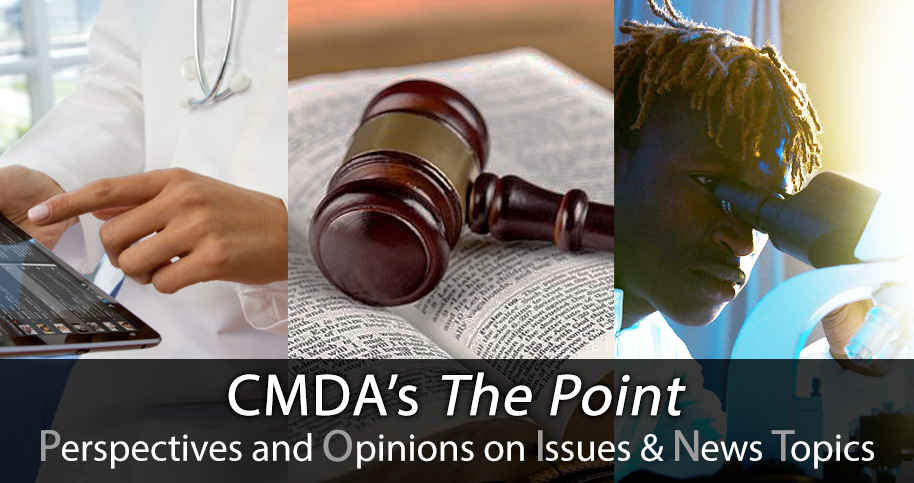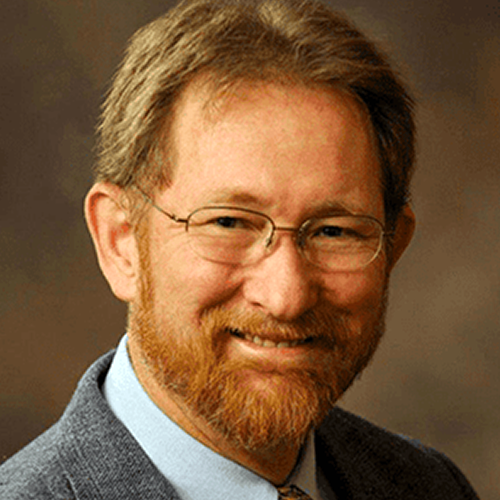
The Point Blog ARCHIVE
All articles found in the archive are more than three years old.
The purpose of this blog is to stimulate thought and discussion about important issues in healthcare. Opinions expressed are those of the author and do not necessarily express the views of CMDA. We encourage you to join the conversation on our website and share your experience, insight and expertise. CMDA has a rigorous and representative process in formulating official positions, which are largely limited to bioethical areas.
Predictions
August 9, 2018
by Robert E. Cranston, MD, MA (Ethics)
“It’s difficult to make predictions, especially about the future.” Pithy sayings are often widely used, but at times they are of unclear origin. This one has been variably attributed to Niels Bohr, Mark Twain, Yogi Berra and an “old Danish proverb,” with minor differences in the exact wording. It serves as a humbling reminder of how little we know about even the things we think we know a lot about.
In medicine, patients and families want to know diagnoses, therapies, risks, benefits and side effects of proposed treatment options. At times the thing they most want to know is what is likely to happen to themselves or their loved ones based on possible interventions. This, however, may be the most difficult answer to give people.
Some physicians refuse to make any predictions, opting for “everyone is different,” “we never know for sure” or “only time will tell.” While these answers are technically accurate, they may not be very helpful to the patient or family.
While studying palliative medicine in Wales in 2003, I heard one famous professor, a dame of the British Empire, tell us that she never provides any firm answer, as any firm answer is almost certain to be incorrect. (Most of the several hundred physicians in the class disagreed with her.) Many in palliative care, oncology or other specialties focusing on end-of-life issues opt for a more useful approach, beginning by acknowledging the inherent inaccuracy of predictions, but framing expected longevity in terms of months to years, weeks to months, days to weeks or any time soon. To give no estimate at all may serve to prevent the patient from doing things they ought to do—rectifying relationships, apologizing, expressing love or getting their financial affairs in order.
In critical care medicine, a number of scales have been employed over the years, trying to capture some of the numerous complex physiological factors that bear on likely outcomes. These can be helpful but accurate only as they apply to populations of patients and not the person in question. Population statistics apply to populations, not individuals.
Most of the above is best employed with a coherent patient. What happens in situations where patients cannot speak for themselves? This varies by state, and by country, internationally. In the U.S., several tools are used to assist the medical team in making decisions that will likely be in the patients’ best interest. These fall under the umbrella term of “Advance Directives.”
After several sensational right-to-die cases (Cruzan and Quinlan) several states enacted laws that may be referred to jointly as “living wills.” The primary purpose of a living will is to document the things the patient does not want done to them—no intubation, no prolonged life support or no enteral feedings, for instance. The POLST document is widely used to serve in this regard, but has its own shortcomings.
A more instructive instrument, if used properly, is the healthcare power of attorney document. This is composed differently in different places, but it gives a little more guidance on specific positive and negative wishes, plus it names a specific agent and optional back-up agent to speak for the patient with the treating physicians. It is best used by patients who are willing to thoroughly discuss their wishes with their agents. Unfortunately, sometimes agents are listed without their knowledge or consent, or without a real discussion of the patient’s hopes and desires regarding possible life, disability or prolonged unconsciousness.
When neither the living will nor the healthcare power of attorney documents have been executed, most states allow for the concept of the “next of kin” serving as surrogates. This is a somewhat nebulous term, so some states list the appropriate agent in order of priority, such as Illinois’s Healthcare Surrogate Act.
One of the biggest problems with the proxy laws is that the designee may not like or even know the patient well. Generally, long-term non-official relationships (including cohabitation) are not recognized, while family members—even if estrangement is present—are authorized to serve as agents. In a recent case in the news, the eight-year relationship with the fiancé was not considered, while a highly tenuous family relationship, complicated by a potential financial settlement, was employed. The conflict of interest is obvious, and the choice to disallow the fiancé’s input appears patently ill advised. When the family demanded withdrawal of care, a court order was necessary to maintain support. Months later, the patient who had been sentenced to a slow starvation is actually alive, reasonably well and reasonably independent.
A few take-home points:
- As a healthcare professional, one must be as helpful as possible, while evidencing a deep sense of humility about one’s ability to prognosticate and provide appropriate assistance to patients and families as they make difficult decisions, offering one’s best informed opinions, while maintaining hope as appropriate.
- As healthcare professionals, we have an obligation to help patients think proactively as they near the ends of their lives and encourage documentation, with appropriate discussions about their wishes.
- As patients, we need to realize that none of us knows how long we will be able to make our own end-of-life decisions. We should find an appropriate surrogate, discuss our wishes with him/her and formally document those wishes.
- As citizens and as Christians, we have an obligation to advocate for those who cannot speak for themselves, particularly when we believe patients are at risk of injury or premature death due to faulty or poorly motivated decisions by proxy decision-makers or overeager medical teams.

